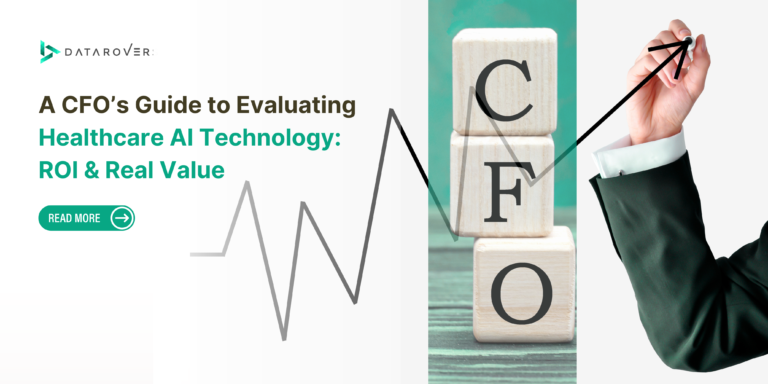Denial management software has become essential for healthcare organizations facing unprecedented challenges in claim processing. With denial rates reaching critical levels and averaging $262 billion in lost revenue annually, modern denial management software leverages artificial intelligence and machine learning to transform traditional reactive approaches into proactive, prevention-focused strategies that optimize revenue cycle performance.
According to the latest Healthcare Financial Management Association (HFMA) research, approximately 9% of hospital claims are denied, whereas health systems are regularly evaluating the right Denial management solutions, such as artificial intelligence, machine learning, and large language models to address the growing complexity of healthcare reimbursement processes. The integration of generative AI and LLMs into denial management platforms has revolutionized how healthcare providers approach claims processing, enabling real-time decision support and automated appeals generation that significantly improves both efficiency and success rates.
Research from MDaudit shows that coding-related denials surged more than 125% in 2024, while medical necessity-related denials increased by 75% for outpatient claims and 140% for inpatient claims. Additionally, Becker’s Hospital Review: The State of Claims 2024 reports that 38% of healthcare organizations acknowledge that 10% or more of their claims are denied, with missing or inaccurate data being one of the top three reasons for denials.
Definition of Denial Management Tools and why is denial management important?
Denial management tools represent sophisticated healthcare IT solutions that combine artificial intelligence, machine learning algorithms, and natural language processing to systematically identify, analyze, and resolve healthcare claim denials. These intelligent systems utilize advanced data analytics and predictive modeling to transform the traditional reactive approach to denials into a proactive, prevention-focused strategy that leverages real-time insights and automated decision-making capabilities . Modern denial management platforms integrate seamlessly with existing healthcare information systems, providing comprehensive visibility into denial patterns while offering AI-powered recommendations for optimal resolution strategies.
Advantages of Using Denial Management Software
- Predictive Analytics Integration: AI-powered systems can predict claim denials with up to 95% accuracy, enabling proactive intervention before submission
- Automated Root Cause Analysis: Machine learning algorithms identify denial patterns and underlying causes, reducing manual analysis time by up to 50%
- Real-time Claim Scrubbing: Advanced validation engines automatically detect and correct errors before claim submission, preventing avoidable denials
- Intelligent Appeal Generation: LLM-powered systems create compelling, data-driven appeals with significantly higher success rates than manual processes
- Enhanced Revenue Recovery: Organizations report recovering an average of $5.4 million annually through AI-driven denial prevention strategies
- Streamlined Workflow Automation: Smart queuing and prioritization systems optimize staff productivity and focus efforts on high-value claims
- Comprehensive Analytics Dashboard: Real-time insights enable data-driven decision making and continuous process improvement
![]()
![]()
Essential Characteristics in Denial Management Systems
- Advanced Machine Learning Capabilities: Systems must incorporate sophisticated ML algorithms for pattern recognition and predictive modeling.
- Natural Language Processing Integration: NLP functionality for automated document analysis and appeal letter generation
- Real-time Data Integration: Seamless connectivity with EHR, practice management, and payer systems for comprehensive data analysis
- Configurable Workflow Automation: Flexible rule engines that adapt to organization-specific processes and payer requirements
- Comprehensive Reporting and Analytics: Advanced visualization tools and customizable dashboards for performance monitoring
- Robust Security and Compliance: HIPAA-compliant architecture with advanced data protection and audit capabilities
Denials 360 : Denial Management Software for Healthcare Providers
- Generative AI-Powered Appeals: LLMs create personalized, compelling appeal letters with supporting documentation automatically generated from clinical data
- Predictive Denial Prevention: Advanced algorithms analyze claim characteristics and payer patterns to flag high-risk submissions before processing
- Intelligent Claim Prioritization: AI-driven triage systems automatically categorize denials by recovery probability and financial impact
- Dynamic Payer Policy Integration: Machine learning systems continuously update denial management strategies based on evolving payer requirements and industry regulations
Operational Mechanism of Denial Management Systems
Modern denial management systems operate through sophisticated AI-driven workflows that integrate multiple data sources and analytical engines to create comprehensive denial prevention and resolution capabilities. The operational foundation begins with real-time data ingestion from electronic health records, practice management systems, and payer databases, which feeds into machine learning models trained on historical denial patterns and payer-specific requirements. Premier Healthcare Claims Analysis Report that systems utilize natural language processing to analyze clinical documentation, automatically extracting relevant information and cross-referencing it against medical necessity criteria and coverage guidelines to identify potential denial risks before claim submission.
The advanced operational framework incorporates generative AI capabilities that enable automated creation of appeal letters, supporting documentation, and corrective action plans based on specific denial reasons and payer policies Large language models analyze denial notifications and generate contextually appropriate responses while maintaining compliance with regulatory requirements and payer-specific communication protocols. The system continuously learns from outcomes, refining its predictive capabilities and improving success rates through iterative machine learning processes that adapt to changing payer behaviors and regulatory environments.
Deployment Strategies for Effective Utilization
Successful implementation of AI-powered denial management systems requires a comprehensive strategy that begins with thorough assessment of existing revenue cycle processes and identification of specific denial patterns within the organization . Healthcare organizations must prioritize integration capabilities, ensuring seamless connectivity between denial management platforms and existing EHR, practice management, and financial systems to enable real-time data sharing and workflow optimization . The deployment process should include extensive staff training on AI-assisted workflows, with particular emphasis on understanding how machine learning algorithms support decision-making processes and how to effectively utilize predictive analytics for proactive denial prevention.
Organizations implementing advanced denial management solutions should establish clear performance metrics and monitoring protocols to measure the effectiveness of AI-driven interventions and continuously optimize system configurations . The deployment strategy must also account for change management considerations, as staff members transition from traditional manual processes to AI-enhanced workflows that require new skill sets and different approaches to denial resolution .Successful implementations typically involve phased rollouts that allow for iterative refinement of AI algorithms and workflow optimization based on real-world performance data and user feedback.
Barriers to Adoption
Healthcare organizations face significant challenges in adopting advanced AI-powered denial management systems, primarily due to concerns about data security, system integration complexity, and staff resistance to technology-driven workflow changes. Many healthcare providers struggle with the initial investment required for comprehensive denial management platforms, particularly smaller organizations that may lack the technical infrastructure necessary to support sophisticated machine learning and AI capabilities . Additionally, the complexity of integrating LLMs and generative AI into existing healthcare IT ecosystems often requires extensive customization and ongoing technical support that can strain organizational resources and timelines
Regulatory compliance concerns and data privacy requirements present additional barriers, as healthcare organizations must ensure that AI-driven denial management systems meet stringent HIPAA requirements and maintain appropriate security protocols for sensitive patient information. Staff training and change management represent ongoing challenges, as healthcare workers must adapt to AI-enhanced workflows and develop new competencies in working with machine learning systems and automated decision support tools . Organizations often underestimate the cultural shift required to move from traditional manual processes to AI-driven denial management, necessitating comprehensive training programs and ongoing support to ensure successful adoption and optimal utilization of advanced capabilities
Instances of Success and Case Studies
Experian Health AI Case Study: Schneck Medical Center demonstrated remarkable success with AI-powered denial management, achieving a 4.6% average monthly reduction in denials within six months of implementation while reducing claim rework time from 12-15 minutes to under 5 minutes. The healthcare system utilized predictive analytics to identify high-risk claims before submission and implemented intelligent triage systems that automatically categorized denials based on recovery probability, resulting in more focused and effective staff efforts. The integration of AI-driven workflows enabled the organization to process significantly more claims with the same staffing levels while achieving higher success rates in denial prevention and appeals processes.
Healthcare organizations implementing comprehensive denial management programs have reported substantial financial improvements, with some mental health providers recovering up to $5 million in previously lost revenue through systematic AI-enhanced denial prevention and appeals processes. These success stories highlight the transformative potential of machine learning and generative AI in addressing complex denial patterns and payer-specific requirements . Industry analyses indicate that healthcare providers implementing AI-driven denial management solutions typically see 50-70% improvements in denial resolution rates and significant reductions in administrative costs associated with manual claim rework processes .
Final Summary
The evolution of denial management software represents a fundamental transformation in healthcare revenue cycle management, driven by the integration of artificial intelligence, machine learning, and large language models that enable predictive analytics and automated decision support. These advanced technological capabilities have proven essential for healthcare organizations facing increasing denial rates and complex payer requirements, offering unprecedented opportunities to optimize revenue recovery and streamline administrative processes. The successful deployment of AI-powered denial management systems for claims management requires strategic planning, comprehensive staff training, and ongoing optimization to fully realize the potential benefits of these sophisticated platforms
For organizations seeking to transform their denial management processes, platforms like SAM Copilot provide intelligent data visualization and analytics capabilities that complement comprehensive denial management solutions. The combination of predictive analytics, automated workflows, and real-time insights positions modern denial management software as an indispensable component of efficient healthcare revenue cycle operations
DataRovers has emerged as a leading provider of AI-powered denial management solutions, with their Denials 360 platform helping healthcare systems achieve improvements in revenue recovery and RCM operational efficiency. The platform’s advanced machine learning algorithms and generative AI capabilities enable organizations to predict claim outcomes with remarkable accuracy while automating complex appeal processes that traditionally required extensive manual intervention.
Book a Demo to continue your journey to revenue recovery!
FAQs
What is denial management software?
Denial management software is a specialized tool designed to streamline the handling of denied insurance claims within healthcare organizations.
What is effective management of denials?
Effective denial management involves thoroughly reviewing all denial codes and reasons, determining if an appeal is warranted, and submitting corrected or additional documentation to appeal the denial. Many healthcare providers can overturn a significant percentage of denials through AI generated appeals.
What are the three types of denials?
Three Claim Denial Categories: Administrative, Clinical and Policy.
What is a denial coder?
Denial codes give specific explanations for claim rejections, allowing billers and healthcare providers to know what caused the denial, thus enabling them to take necessary actions that can lead to issue resolution.
Why should you use denial management software?
Using denial management software as a proactive measure can help ensure claims are only submitted if they are eligible. This saves time and resources and avoids the cost of submitting a claim that will be rejected because of ineligibility saving reworking claim cost.
Why should healthcare providers use denial & appeal management software?
When reducing denials is the top priority for providers, healthcare denial management software is vital. Otherwise, managing denials and building appeal packages slows cash flow and takes your team off high-value tasks.
What should a practice look for in a denial management system?
A practice looking for a denial management system should look for a software company willing to sit down and discuss their areas of lost revenue and other needs before discussing costs and features. When it’s time to purchase or upgrade your denial management software, consider DataRovers Denials 360.
How can denial management reduce costs?
Reduce denial management costs through automation, prevention tools and analytics for greater efficiency, faster appeals and improved cash flow.



